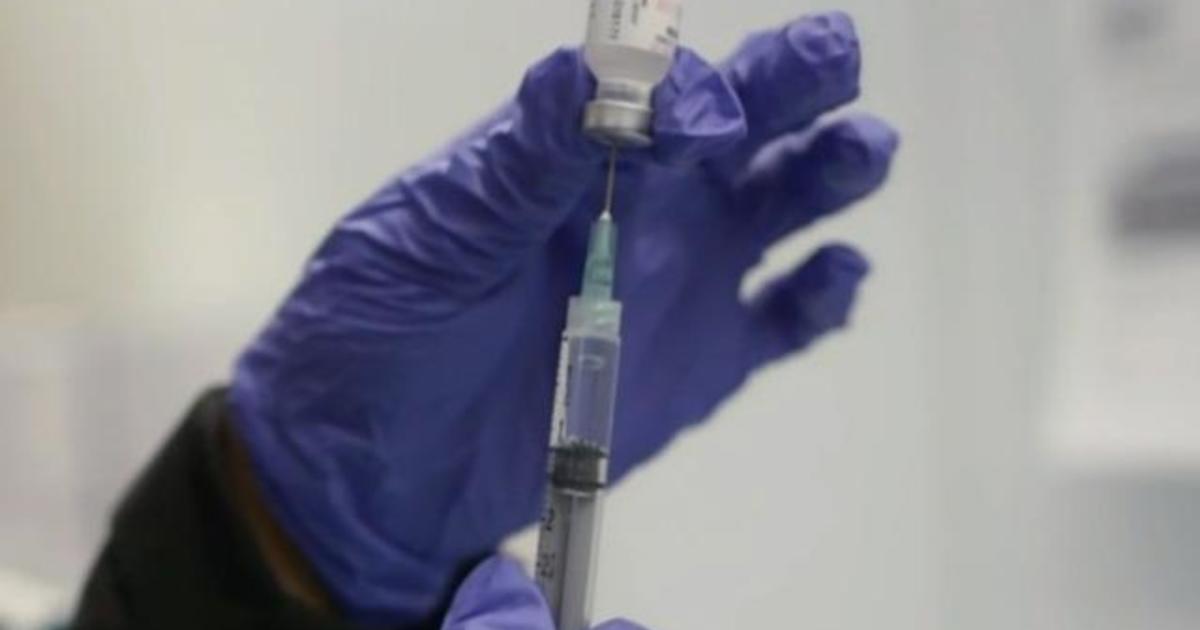
A third health care worker in Alaska has suffered an allergic reaction to Pfizer's COVID-19 vaccine. Severe allergic reactions can occur with any vaccine, but are extremely rare.
The employee, one of almost 300 to receive the vaccine Friday at Foundation Health Partners Fairbanks Memorial Hospital, said in a statement shared by the hospital that her experience should not deter others from getting vaccinated.
"Anaphylaxis is a rare but expected potential side effect that is treatable and does not have long term health implications like COVID," said the employee, who wishes to remain anonymous, in the statement. "I would get the vaccine and recommend it to anyone, despite my reaction, to help our country get immunized which is needed for the health of all Americans, for the economy, get families hugging again, for getting children back to schools, and to get the country on the other side of this pandemic."
She added that she's "seen firsthand the suffering and death of COVID patients," and that her "adverse reaction to the vaccine pales to what COVID infection can do to people."
According to the hospital, the employee "showed signs of an anaphylactic reaction, with increased heartbeat, shortness of breath and skin rash and redness" ten minutes after receiving the vaccine. The CDC recommends that all vaccine recipients be observed for 15 minutes after injection, and "persons with a history of anaphylaxis (due to any cause)" be observed for 30 minutes. The hospital said in its statement that all of its employees that receive the vaccine are being observed for 15 to 30 minutes.
The Food and Drug Administration's Pfizer vaccine fact sheet, given to recipients and caregivers of the vaccine, warns that "there is a remote chance that the Pfizer-BioNTech COVID-19 Vaccine could cause a severe allergic reaction." And adds that "a severe allergic reaction would usually occur within a few minutes to one hour after getting a dose of the Pfizer-BioNTech COVID-19 Vaccine."
Dr. Mark Dykewicz, an allergy and immunology expert at Saint Louis University Hospital in Missouri and a member of the FDA's Allergenic Products Advisory Committee, said that while severe reactions are serious, vaccines are being given in settings where medical personnel are ready to treat anaphylaxis. Fairbanks' temporary vaccine clinic is equipped with an emergency anaphylaxis kit, according to the hospital.
The worker, who, according to Fairbanks, does not have allergies, "received two doses of epinephrine In the Emergency Department of Fairbanks Memorial Hospital (FMH), where she remained under observation and was discharged approximately six hours after receiving the doses."
"Allergic reactions, though uncommon, can occur with injections of medications and vaccines," said the hospital's Chief Medical Officer Dr. Angelique Ramirez. "This is why our staff is trained and prepared to respond to any symptoms of anaphylaxis. Our employee is doing well and was able to go home yesterday."
Two employees at Bartlett Regional Hospital in Juneau, Alaska, also experienced allergic reactions — one severe, one mild — earlier in the week. Both were treated and recovered.
The employee who suffered a severe reaction also experienced onset 10 minutes after injection, according to Dr. Lindy Jones, the emergency room director at Bartlett. "She was given epinephrine and Benadryl, admitted to the hospital, and put on an intravenous epinephrine drip. Her reaction was serious but not life threatening."
"During the whole time, she was still enthusiastic that she got the vaccine and the benefits that it would give her in the future," Jones said. The hospital's statement said she was also "still encouraging her colleagues to get the vaccine."
According to the CDC, as of Friday, there were six confirmed cases of anaphylaxis following vaccination in the U.S. As of Saturday morning, 272,001 doses of the Pfizer-BioNTech vaccine had been given throughout the country, according to a CDC report on the allergic reactions.
There were no anaphylaxis reactions during Pfizer's trial of the drug on about 22,000 people, according to the company. "Overall, there were no safety signals of concern identified in our clinical trials, including no signal of serious allergic reactions associated with vaccine," Pfizer said in a statement to CBS News. "However, reports of adverse events outside of clinical studies are a very important component to our pharmacovigilance activities and we will review all available information on this case and all reports of adverse events following vaccination."
On Thursday, after reports of the first serious reaction, Pfizer said it did not "yet have all the details of the report from Alaska about a potential serious allergic reaction," but was "actively working with local health authorities to assess."
"We will closely monitor all reports suggestive of serious allergic reactions following vaccination and update labeling language if needed," reads the company's statement. "The prescribing information has a clear warning/precaution that appropriate medical treatment and supervision should always be readily available in case of a rare anaphylactic event following the administration of the vaccine."
Dykewicz said it is "certainly of note that both reactions occurred in the same medical facility."
"It is a curious finding that deserves further investigation," he said.
Article From & Read More ( Third allergic reaction to COVID-19 vaccine reported in Alaska - CBS News )https://ift.tt/34q01oY
Health
Bagikan Berita Ini














0 Response to "Third allergic reaction to COVID-19 vaccine reported in Alaska - CBS News"
Post a Comment